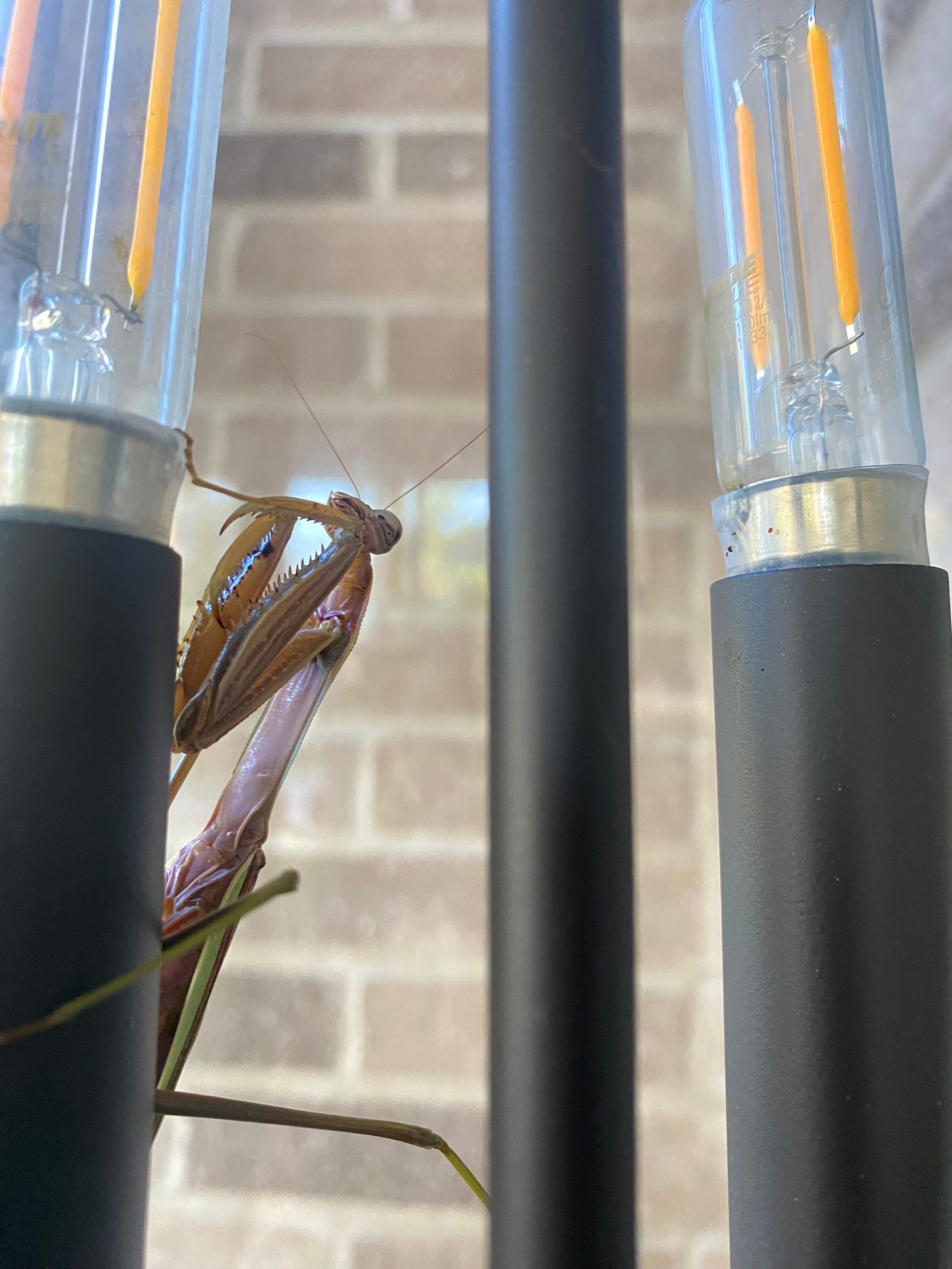Five Questions with Oh Reader Magazine's Editor, Gemma Peckham
Plus: Is "Quiet Quitting" really a thing? Issue #111
We’ve heard quite a bit about “Quiet Quitting” since the end of 2022. Supposedly, millions and millions of American workers, are barely showing up for work, doing the minimum, not caring about their productivity and refusing to help their Boomer managers remember their passwords.
Supposedly, no one wants to work anymore and this is a new thing that America’s pundits have discovered. Weirdly, I have very distinct memories of my high school teachers saying the same thing. Back then no one wanted to work either. Sadly, I’m old enough to remember the fear the national media put into us back in the 1980’s that the Japanese were going to eat America alive because they worked so hard all the time and we were all a bunch of slackers.
If you’re feeling cynical about any of this, I’d remind that it was Solomon who said that there is nothing new under the sun. Solomon is supposed to have lived more than 2,000 years ago. So maybe there really is nothing new under the sun.
In a September think piece, NPR writers Greg Rosalsky and Alina Selyukh suggested that it might be that a large portion of the US labor force has always been phoning it in. But now there’s social media and it’s talked about in the open. Or, as they suggest, there’s “better branding.”
I think they’re right. I’ve worked in offices, called on offices and I don’t think there’s all that much difference between lounging in someone’s doorway and talking about the game on Sunday, or taking a few minutes to toss a load of laundry into the washer.
Is there a difference between taking some time to look at the “Trips Slack” posts in your home office or at your hot desk in the open plan?
In a similar article in The Atlantic, Derek Thompson points out that a slight drop in productivity post pandemic could have more to do with people switching jobs and the issues we had in 2021 and 2022 with the supply chain.
I’d add to the argument that the pandemic finally gave some workers permission to openly react to what was often simply bad management. One thing I’ve noticed over many years of consulting for a wide variety of companies is that bad management does not necessarily result in low productivity. But it does result in employees who seem to be waiting for an opportunity to leave (Hence our current low unemployment rates), or find a way to let management know how terrible they are (aka “Quiet Quitting”).
If you have any experiences with this, drop me an anonymous line. I’d love to know how things work out.

Five Questions with Gemma Peckham, Editor in Chief of Oh Reader & Rova Magazines
It’s the third Tuesday of the month so let’s go and meet someone in the magazine media world that you should know. Who is Gemma Peckham and why should you know her?
Gemma Peckham is the editor-in-chief and publisher at Executive Media Global, which produces ROVA, Oh Reader and Century 21 Fine Homes & Estates magazines (along with some digital birdwatching guides). Gemma is Australian, and lived for six years in New York while building the business. These days, she runs the company from a small home near the beach in southern Australia.
When she’s not grappling with the intricacies of magazine publishing, Gemma loves to read (surprise, surprise), and try a bunch of different hobbies, like singing, pottery, drawing and various exercise classes. She is also considering writing a memoir, but that’s on the distant horizon
Here’s a lightly edited version of our conversation with Gemma Peckham
#1: How did you begin working in magazine media? Did you have any specific training that prepared you for your first job in magazines?
I was studying a Master of Publishing and Editing at the University of Melbourne, Australia, and a friend from the course put me forward for a receptionist job at a small magazine publishing company in the city, where she also worked. My role was to take messages for sales reps, type labels for envelopes and do a little proofreading. Fast-forward 15 years, and I am now the editor-in-chief at the US office of the same company, having advanced from receptionist to proofreader to editorial assistant to senior editor in Melbourne, and then moving to New York to start our office there.
The Master’s degree definitely helped get me on my feet (it also helped to introduce some new processes into the company’s way of doing things). But as we know, hands-on experience is the best teacher, and I learned oodles more at work than I had at university.
#2: What are some trends or challenges you watched the industry confront this year and how well do you think we handled (are handling) it? What challenges do you thin we’ll encounter over the next few years?
As a publisher, it’s really just about reaching your audience. Maintaining a social media presence, finding outlets for retail when newsstand space is dwindling, competing with hundreds of other publications and/or entertainment services for attention. Publishers are trying to diversify their distribution via avenues like specialty stores and online promotions, but it’s a hard slog.
There’s also the pricing of everything. Costs of paper, ink, printing and postage have all increased, and the constant battle is how to deal with those costs without losing money or putting our readers off with increased pricing. There’s no perfect solution—if we want to keep making the magazines, we have to pass on at least some of the costs to the end user. Otherwise, we’re running at a loss.
#3: Do you think print magazines will have much of a future over the next decade? Will there be print magazines in 2043?
I think print magazines will always be around. The industry has shifted in the past decade or so to really focus on niche and specialty content, for which there will always be readers. A reader who is an ardent fan of something like RVing or reading (which are the niche areas of our publications) will not be satisfied with Googling or reading online articles about their passion. They appreciate the curated content that magazines provide, and they collect and revisit magazines that they love. Also, I think I can safely say that many people want to be as far away from a screen as possible when relaxing, these days. The feel of a paper magazine in your hands is unbeatable.
#4: If you couldn’t have a career in magazines, what would you have wanted to do?
I’m lucky that I get to do something that involves a fair bit of creativity, because I’ve always been a creative person. That said, I would love to make things with my hands—I dream of being a ceramicist and just throwing pots on a wheel in a studio somewhere. Preferably in the country, with ducks and sheep outside and a lovely fireplace keeping me warm.
#5: Did you have a mentor early in your career and do you want to give them a shoutout? What was a good piece of advice that they gave you that you’d be willing to share?
I didn’t really have a mentor, as such. When I was editorial assistant, the editor left quite abruptly, without really passing on much information about how to actually edit a magazine—things like commissioning stories, the editorial process etc. It was a real trial by fire, so I’d say that my mentor/s were myself and my editorial colleagues, who worked feverishly to figure out how to keep things running and get the magazines printed, learning as we did it.
At university, we were taught that if you want to make a magazine, you should make sure that there’s a gap in the market for it, and that the reader is always your focus. The world doesn’t need more celebrity or fashion magazines, but there’s plenty of scope for new mags that serve specific passions. That’s what I love to see!
Editor’s Note: Executive Media Global is currently a client.
Your moment of magazine zen…
I hope you enjoyed this newsletter. Please “Like” and subscribe. You’ll get a brand new release in your email in-box every Tuesday (Or sometimes Wednesday if things get a little hectic around here).
Want to find me on the social sites?
My Instagram link is here.
I’m now hanging out at Post.News and you can find me here on this new app.
Want to see me in a suit and tie and with neatly trimmed and combed hair? Here’s my LinkedIn profile where I try to look all professional.
And here’s an important update from the Senior Content Management Team at “It’s Tuesday”:
The entire team here at “It’s Tuesday” are totally dedicated to providing you, the customer, with the best free reading experience possible. In order to achieve that high level of customer contentment we find that we must take steps to insure the continuity of that experience. Therefore, where in the past we allowed the closing statements of this newsletter to be written by a junior editor who we believed had a future with this organization, we are now shopping it out to an AI in order to contain costs and insure the future of our organization. We are revealing this information to you to show you, the content consumer, that we are dedicated to being fully transparent with you. This is who we are.
“I hope you found our interview with Gemma to be informative. We wish you a productive week with ample time for rest and relaxation. Please endeavor to avoid lengthy meetings and email chains. Additionally, I am pleased to inform you that Veronica from marketing has shared some interesting photographs on the Trips Slack channel. Furthermore, I have heard that there is pizza available in the break room.”





